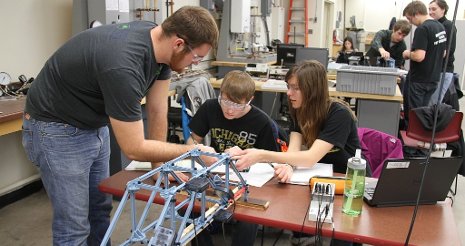10 Jul Michigan Tech 1 of 5 Universities Chosen to Help Improve Diversity in Mechanical Engineering Education
Michigan Technological University’s Department of Mechanical Engineering-Engineering Mechanics is one of five mechanical engineering departments nationwide selected by the National Science Foundation (NSF) to participate in a new diversity training program. The others are Purdue, Oregon State, Texas Tech and the University of Oklahoma. The NSF...






